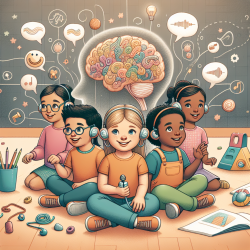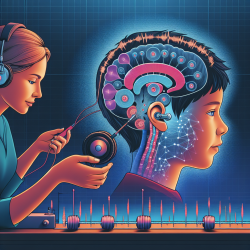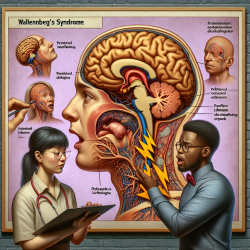Introduction
The COVID-19 pandemic has had profound impacts on various demographics, with college students being particularly affected. The research article "Experiences, impacts and mental health functioning during a COVID-19 outbreak and lockdown: Data from a diverse New York City sample of college students" offers valuable insights into these impacts. As practitioners in the field of speech-language pathology, understanding these findings can significantly enhance our ability to support the mental health and well-being of children and young adults.
Key Findings
The study surveyed 909 ethnically and racially diverse college students from New York City, revealing significant disruptions in daily life, including heightened symptoms of depression and anxiety. Notably, 17% of students experienced the loss of a loved one due to COVID-19, leading to greater psychological distress. Despite these challenges, 96% reported at least one positive experience during the pandemic, highlighting resilience amidst adversity.
Implications for Practitioners
These findings underscore the importance of integrating mental health support into educational and therapeutic settings. Here are some actionable steps practitioners can take:
- Enhance Emotional Support: Incorporate strategies that promote emotional resilience and coping skills in therapy sessions. Techniques such as mindfulness and cognitive-behavioral strategies can be effective.
- Foster Social Connections: Encourage children to maintain social interactions, even if virtually, to mitigate feelings of isolation and loneliness.
- Address Grief and Loss: Provide targeted support for children who have experienced loss, helping them process their emotions and find healthy outlets for expression.
- Promote Positive Experiences: Highlight and build upon positive experiences and achievements, reinforcing a sense of accomplishment and well-being.
Encouraging Further Research
While this study provides a comprehensive overview of the pandemic's impact on college students, further research is needed to explore the long-term effects on younger populations. Practitioners are encouraged to engage in or support research initiatives that examine the developmental and psychological impacts of COVID-19 on children. Such research will inform best practices and interventions tailored to the unique needs of this demographic.
Conclusion
The insights gained from this study are invaluable for practitioners dedicated to enhancing the well-being of children and young adults. By integrating these findings into practice and advocating for continued research, we can better support the mental health of the next generation. To read the original research paper, please follow this link: Experiences, impacts and mental health functioning during a COVID-19 outbreak and lockdown: Data from a diverse New York City sample of college students.










